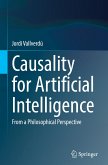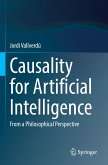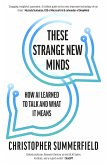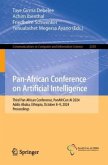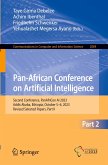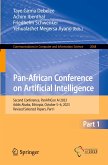Prompting marks a paradigmatic shift in how we engage with artificial intelligence transforming static interfaces into dynamic conversations, reshaping the relationship between user intent, system behavior, and knowledge production. This book invites readers into that frontier, tracing the contours of prompting as a methodology for causal understanding across diverse academic and applied domains.
At its heart, prompting democratizes computational reasoning. It lowers the threshold of expertise required to interrogate complex systems, analyze data, and simulate outcomes. Where once deep technical skill was necessary to extract insights from models or datasets, prompting enables a new kind of user one who crafts queries, scenarios, and simulations with natural language, guided by discipline-specific rigor and cognitive intent. This transformation is especially urgent in the realm of causality, a concept as contested as it is essential. Across centuries, philosophers, scientists, statisticians, and legal scholars have debated its meaning, its measurement, and its manifestations.
This book does not aim to resolve those disputes; instead, it offers a set of practical strategies to work with them mobilizing the capabilities of generative AI to support causal reasoning tailored to disciplinary norms and constraints. Generative AI can engage in multimodal causal inference connecting language with images, charts, simulations, and numerical data. This ability to traverse modes of representation opens new pathways for inquiry, particularly in science, education, and design. Prompting, therefore, is not simply a communication layer. It is a new medium for causal thought. The future of causality may not belong to machines or humans alone. It will belong to those who master the art of asking better questions.
The author will guide the readers through the full spectrum of prompting techniques from role simulation and reasoning chains to creative generation and ethical constraints. Whether you are a researcher, educator, policymaker, or student, this book is designed to enhance your fluency in a language we are all still learning to speak: the language of generative epistemics.
At its heart, prompting democratizes computational reasoning. It lowers the threshold of expertise required to interrogate complex systems, analyze data, and simulate outcomes. Where once deep technical skill was necessary to extract insights from models or datasets, prompting enables a new kind of user one who crafts queries, scenarios, and simulations with natural language, guided by discipline-specific rigor and cognitive intent. This transformation is especially urgent in the realm of causality, a concept as contested as it is essential. Across centuries, philosophers, scientists, statisticians, and legal scholars have debated its meaning, its measurement, and its manifestations.
This book does not aim to resolve those disputes; instead, it offers a set of practical strategies to work with them mobilizing the capabilities of generative AI to support causal reasoning tailored to disciplinary norms and constraints. Generative AI can engage in multimodal causal inference connecting language with images, charts, simulations, and numerical data. This ability to traverse modes of representation opens new pathways for inquiry, particularly in science, education, and design. Prompting, therefore, is not simply a communication layer. It is a new medium for causal thought. The future of causality may not belong to machines or humans alone. It will belong to those who master the art of asking better questions.
The author will guide the readers through the full spectrum of prompting techniques from role simulation and reasoning chains to creative generation and ethical constraints. Whether you are a researcher, educator, policymaker, or student, this book is designed to enhance your fluency in a language we are all still learning to speak: the language of generative epistemics.


